detail profile mohamed fellag
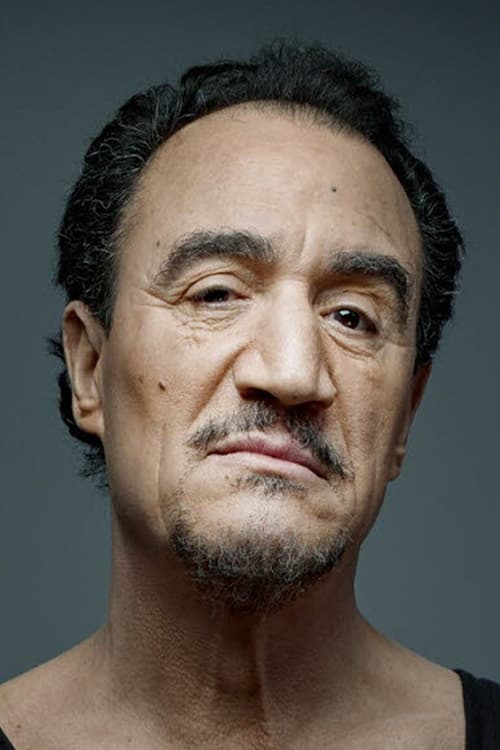
Mohamed Fellag
محمد فلاق
atau dikenal sebagai
Riwayat Hidup
Mohand Fellag (in Arabic محمد فلاق; in Berber ⴼⴻⵍⵍⴰⴳ), known as Mohamed Fellag or simply "Fellag" or sometimes Mohamed Saïd Fellag, is an Algerian actor, humorist and writer, born March 31, 1950 in Azeffoun in Algeria.
Mohamed Fellag (ⴼⴻⵍⵍⴰⴳ in Tifinagh) was born in Azeffoun in Kabylia.
He only spoke Kabyle until the family moved to Algiers when he was eight years old.
He then learned Algerian Arabic and French.
His father, an FLN activist during the war, was killed in a car accident in 1965 during a mission (he was 15).
He studied theater at the National Institute of Dramatic and Choreographic Art of Algiers, located in Bordj el Kiffan, from 1968 to 1972.
He left the National Theater and founded his company with former students.
They write texts, go on tour, play in prisons, factories, etc.
He emigrated to Quebec in 1978, then to Paris in 1982, living from small jobs.
In September 1985, he returned to Algeria and was hired by the Algerian National Theater to perform "The Art of Comedy" by Eduardo De Filippo.
He worked as an actor and director, and began writing his texts, including his first show, "Les Aventures de Tchop" in 1986.
He became a star thanks to performances mixing Berber, Arabic and French.
In 1991, "Babor Australia" was created in Kabyle, then performed in Algerian Arabic in Paris.
At the Théâtre de l'Europe in 1992, it was performed alternately in Kabyle and Algerian Arabic.
"Babor Australia", updated to "A boat for Australia" in 2002, is based on a rumor, evoking the imminent arrival in Algiers of an Australian boat supposed to take unemployed people to provide them with employment and accommodation there, which caused a queue in front of the Australian embassy.
He directed the Béjaïa theater for a while in 1992-939.
The Algerian Civil War broke out, Fellag went on tour in 1994 with "Babor Australia", in Algeria then in Tunisia.
At the end of the year, he settled in Tunis where he created "Delirium".
In 1995, he went into exile in Paris.
He writes there "Djurdjurassique Bled", which is represented alternately in Kabyle and Algerian Arabic.
Then, he adapted it into French and this first show in French, created in December 1997, earned him the 1997-1998 Critics' Union Prize, theatrical revelation of the year.
Fellag lived with the actress Marianne Épin, who died on December 9, 2017, who staged several of his last shows.
Info Pribadi
Peran Yang Di Mainkan Mohamed Fellag
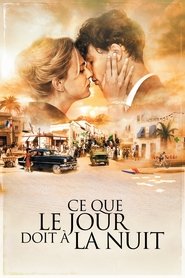 Algeria the 1930s Younes is nine...
Algeria the 1930s Younes is nine...What the Day Owes the Night 2012
Algeria, the 1930s. Younes is nine years old when he is put in his uncle's care in Oran. Rebaptized Jonas, he grows up among the Rio Salado youths, with whom he becomes friends. Emilie is one of the gang; everyone is in love with her. A great love story develops between Jonas and Emilie, which is soon unsettled by the conflicts troubling the country.
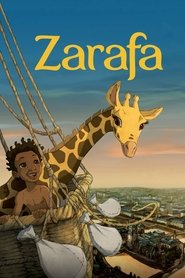 Inspired by the true story of...
Inspired by the true story of...Zarafa 2012
Inspired by the true story of the first giraffe to visit France, Zarafa is a sumptuously animated and stirring adventure, and a throwback to a bygone era of hand-drawn animation and epic storytelling set among sweeping CinemaScope vistas of parched desert, wind-swept mountains and open skies. Under the cover of darkness a small boy, Maki, loosens the shackles that bind him and escapes into the desert night. Pursued by slavers across the moon-lit savannah, Maki meets Zarafa, a baby giraffe – and an orphan, just like him – as well as the nomad Hassan, Prince of the Desert. Hassan takes them to Alexandria for an audience with the Pasha of Egypt, who orders him to deliver the exotic animal as a gift to King Charles of France.
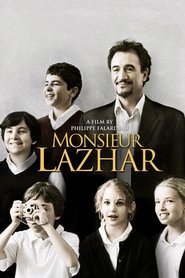 During a harsh Montral winter an...
During a harsh Montral winter an...Monsieur Lazhar 2011
During a harsh Montréal winter, an elementary-school class is left reeling after its teacher commits suicide. Bachir Lazhar, a charismatic Algerian immigrant, steps in as the substitute teacher for the classroom of traumatized children. All the while, he must keep his personal life tucked away: the fact that he is seeking political refuge in Québec – and that he, like the children, has suffered an appalling loss.
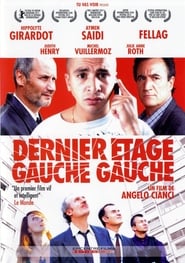 Like every morning Franois Echeveria a...
Like every morning Franois Echeveria a...Top Floor Left Wing 2010
Like every morning, François Echeveria, a bailiff, should have been able to make a seizure in a suburban city, then quietly return home. But that day, fate decided otherwise. Due to a misunderstanding, he is taken hostage by an impoverished father and his wild son...
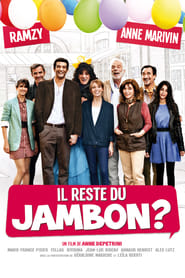 Djalil Boudaoud and Justine Lacroix are...
Djalil Boudaoud and Justine Lacroix are...Bacon on the Side 2010
Djalil Boudaoud and Justine Lacroix are a surgeon and a television reporter who enter a romantic relationship despite the objections of their families to the cultural gap.
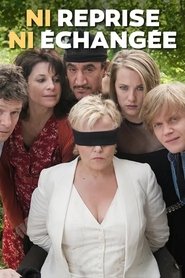 Juliette a mother of wealthy family...
Juliette a mother of wealthy family...Ni reprise, ni échangée 2010
Juliette, a mother of wealthy family and a little snobbish, has gradually developed a kind of generalized contempt against his fellows. One day a bunch of little naive thugs manages to remove it. Because it is often obnoxious with his entourage, his family decided not to pay anything for her release. Shocked, Ellie began to join her captors in order to concoct a revenge more expensive. The unsympathetic billionaire turns against her will in a sort of Robin embittered and vengeful wood. Soon, his family is forced to pay more attention to his kidnapping: worrying samples are taken by Juliette, free-spending ...
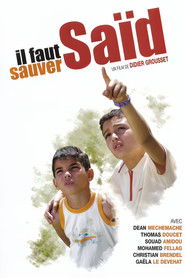 10yearold Sad a child of Algerian...
10yearold Sad a child of Algerian...Il faut sauver Saïd 2008
10-year-old Saïd, a child of Algerian immigrants, is talented, motivated and would like to be a good student. But the conditions at the collège he attends in the Parisian banlieue hardly give him a chance. And then he is drawn into the criminal machinations of his brother.
 Set in France during the struggle...
Set in France during the struggle...Michou d'Auber 2007
Set in France during the struggle for Algerian independence, Messaoud's mother is terminally ill and his father, needing to work long hours in the factory, can't look after him, so decides to put him and his older brother Abdel in foster care. Sent to the countryside, Abdel has to work on a farm, but Messaoud is taken in by a childless woman, who conceals his Arab origins from her fiercely Gaullist ex-army husband. Re-named Michel/Michou, and with his hair comically dyed blond, the young boy quickly steals the hearts of both foster-parents, and eventually is instrumental in saving their troubled marriage.
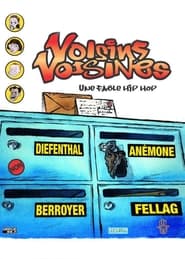 The Mozart Residence is home to...
The Mozart Residence is home to...Voisins, voisines 2005
The Mozart Residence is home to several "new owners" of all origins: a new concierge, Paco, of Spanish origin, who has just been released from prison, arrives at the residence. Around it, the hall and the mailboxes, the "ballet" of the Residence Mozart is organized.
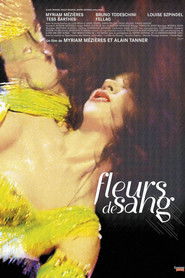 In custody after she murders her...
In custody after she murders her...Flowers of Blood 2002
In custody after she murders her middle aged photographer lover, a fourteen year old Pam reflects back on the bohemian life she spent with her mother Lily, a free spirited cabaret performer. Lily tried to elevate her stripper performances from the level of erotic spectacle to artistic expression as she dragged her young daughter from nightclub to nightclub and hotel to hotel, but ultimately lost her at nine to the Paris child authorities.
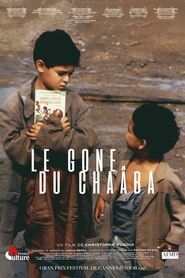 Le Gone du Chaba The Kid...
Le Gone du Chaba The Kid...The Kid from Chaaba 1998
Le Gone du Chaâba (The Kid of the Chaaba), translated into English as Shantytown Kid by Naima Wolf, is an autobiographical novel by Azouz Begag about his life as a young Algerian boy growing up in a shantytown next to Lyon, France, called the Chaâba by its inhabitants. The story covers a period of approximately three years in the life of the protagonist and deals with issues developing from the clash between two cultures, that of France and that of North Africa, as well as the difficulties of finding a cultural identity between the two. The story focuses on the cultural differences between the Arab and French communities, as well as how the two groups react to each other
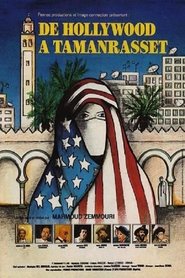 On the outskirts of Algiers Algeria...
On the outskirts of Algiers Algeria...From Hollywood to Tamanrasset 1990
On the outskirts of Algiers, Algeria. the arrival of the satellite dishes governs the lives of the inhabitants. Dissatisfied with their lives, they think of themselves as the heroes of American soap opera and movies, so JR, Sue Ellen, Rambo, Kojak, Spock and others take possession of bodies and minds, with many typical American culture elements. These heroes mix in a beautiful funny mess, with tradition and modernism, Islam and television, reality and fiction.
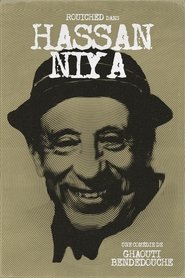 The story of Hassan the handyman...
The story of Hassan the handyman...Hassan Niya 1989
The story of Hassan, the handyman in the inn of his sister Aïcha, widowed and childless. A whole series of incidents, misunderstandings, will punctuate his daily routine in which we find him in turn driver, waiter, welder, etc. But, he refuses to submit to anything that does not conform to the idea he has of society and things...
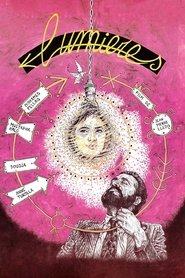 Long quest for a director specializing...
Long quest for a director specializing...Lumières 1989
Long quest for a director specializing in commissioned films, who after a depression rediscovers his loved ones, his Casbah district, himself. Taken in hand, for a while, by his Islamist neighbor, it is above all the meeting with an old projectionist giving him a censored history of cinema and Algeria, which helps him to change, and to accept his own fantasies, embodied by Marilyn Monroe and the Andalusian.
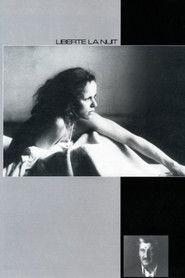 In the mist of the Algerian...
In the mist of the Algerian...Liberty at Night 1984
In the mist of the Algerian events, a man finds a fugitive happiness beside a local woman.
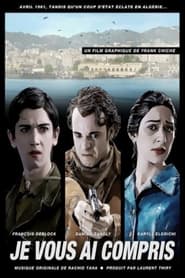
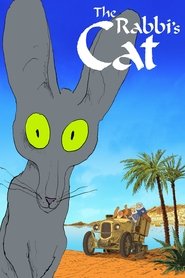 The story of a rabbi and...
The story of a rabbi and...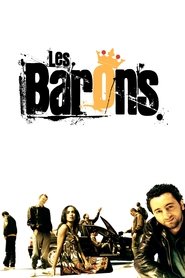 Les Barons ont une devise glander...
Les Barons ont une devise glander... A drama following a French platoon...
A drama following a French platoon...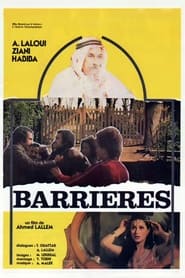 Tahar son of a wealthy family...
Tahar son of a wealthy family...